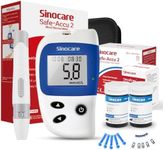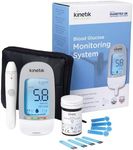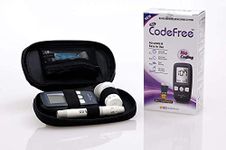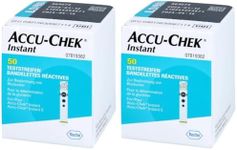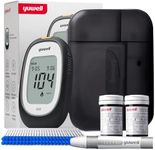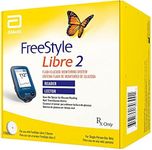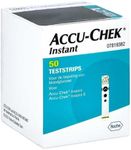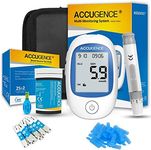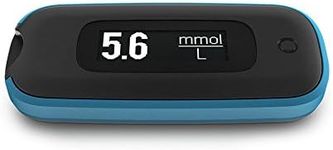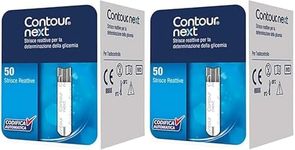Buying Guide for the Best Glucose Meters
Choosing the right glucose meter is crucial for effective diabetes management. A glucose meter, also known as a glucometer, is a device that measures the amount of glucose in your blood. The right meter can help you monitor your blood sugar levels accurately and conveniently, which is essential for maintaining your health. When selecting a glucose meter, consider factors such as ease of use, accuracy, and additional features that may suit your lifestyle and health needs.AccuracyAccuracy is the most critical factor when choosing a glucose meter because it directly affects your ability to manage your diabetes. An accurate reading ensures that you can make informed decisions about your diet, exercise, and medication. Glucose meters are generally required to meet certain accuracy standards, but some may perform better than others. To navigate this, look for meters that have been independently tested and have good reviews regarding their accuracy. If you have specific health conditions or are on medications that can affect blood sugar levels, consult with your healthcare provider to ensure the meter you choose is suitable for your needs.
Ease of UseEase of use is important because it affects how likely you are to use the meter regularly. A user-friendly glucose meter will have a simple interface, clear instructions, and require minimal steps to get a reading. Some meters have large displays, which are helpful if you have vision problems. Consider how the meter fits into your daily routine; if you need to test frequently, a meter that is quick and easy to use will be beneficial. If you are new to using glucose meters, look for one with a straightforward design and clear instructions.
Test Strip AvailabilityTest strips are an ongoing cost and necessity for using a glucose meter, as they are required for each test. It's important to ensure that the test strips for your chosen meter are readily available and affordable. Some meters use proprietary strips, which can be more expensive or harder to find. Check if the strips are available at your local pharmacy or if they can be ordered online. If you test frequently, consider the cost and availability of strips as a significant factor in your decision.
Data ManagementData management features allow you to track and analyze your blood sugar readings over time. Some glucose meters come with memory storage, allowing you to save past readings, while others can connect to apps or computers to download and manage data. This can be particularly useful if you need to share your readings with a healthcare provider. If you are tech-savvy or need to keep detailed records, look for a meter with robust data management features. If you prefer simplicity, a basic meter with limited data storage may suffice.
Size and PortabilityThe size and portability of a glucose meter can affect how convenient it is to carry and use throughout the day. Smaller, more portable meters are easier to take with you, which is important if you need to test your blood sugar levels while on the go. Consider your lifestyle and how often you travel or leave the house. If you need to test frequently while away from home, a compact and lightweight meter will be more convenient. However, if you primarily test at home, size may be less of a concern.
Additional FeaturesSome glucose meters come with additional features such as Bluetooth connectivity, voice guidance, or the ability to test on alternative sites like the forearm. These features can enhance the usability of the meter and provide added convenience. Consider what features are important to you based on your lifestyle and health needs. For example, if you have difficulty with finger pricks, a meter that allows alternative site testing might be beneficial. If you are tech-oriented, Bluetooth connectivity for syncing data with your smartphone could be a valuable feature.
